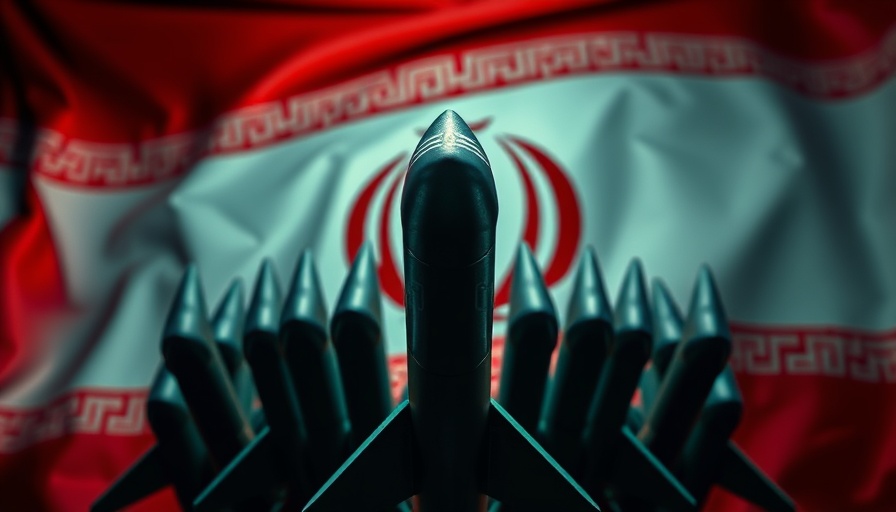
The Rising Threat: Iran's Pursuit of Nuclear Weapons
An Iranian lawmaker has recently sparked global concern by openly advocating for the development of nuclear weapons, using North Korea as a model. This alarming statement serves as a reminder of the heightened nuclear tensions that have characterized the Middle East, particularly in relation to U.S. foreign policy. With Supreme Leader Ayatollah Khamenei reaffirming his willingness to retaliate against perceived threats from the U.S., the risks of escalation in the region feel more pressing than ever.
North Korea's Example: A Double-Edged Sword
The Iranian MP's suggestion to follow North Korea's approach to nuclear armament reflects a strategy aimed at deterring American aggression. North Korea has successfully navigated its isolation, developing nuclear capabilities that compel international actors to engage in dialogue from a position of strength. However, this model also comes with significant risks, including international sanctions, economic isolation, and the potential for military conflict. It is crucial to consider whether Iran could replicate this precedent without facing similar dire consequences.
Strategic Implications for Global Security
As Iran scales up its uranium enrichment beyond the limits of the original nuclear agreement, Western intelligence agencies are raising alarms over the potential militarization of its nuclear program. Analysts express concern that Iran may be pushing boundaries not only to defend against perceived threats but also to extract concessions from global powers, much like North Korea’s strategies in trade talks. This opens a pivotal debate about how global security mechanisms must adapt when faced with nuclear ambitions of countries that display similar behavior to North Korea.
The Path Forward: Negotiation or Confrontation?
With Iran’s rejection of direct negotiations with the U.S., the international community is at a crossroads. There is a pressing need to reassess diplomatic strategies aimed at denuclearization while ensuring that national security interests of all involved parties are protected. The potential arms race in the Middle East, catalyzed by Iran's ambitions, can have far-reaching impacts, not just for the region but for global stability as well.
In conclusion, the call for nuclear weapons development by Iranian officials not only highlights a critical geopolitical issue but also challenges the frameworks that have governed nuclear diplomacy. As nations grapple with North Korea's infamous precedent, the international landscape faces both challenges and opportunities for forging a more secure future.
 Add Row
Add Row  Add
Add 




 Add Row
Add Row  Add
Add 



Write A Comment